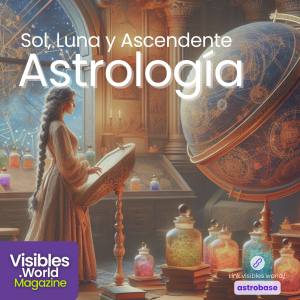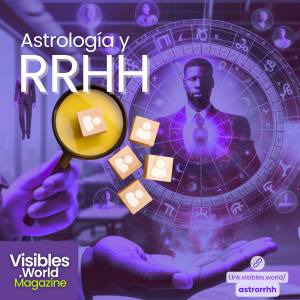Humberto Maturana: The Dance of Conversation and Ethics in Education
Humberto Maturana and Ximena Dávila explore the deep connection between education, ethics and the art of conversation. Through their reflections, they invite us to question our relationships and discover the transformative power of genuine listening.
Index
- Introduction to Conversation
- Emotion as a Guide for Life
- An Ethical World
- Reflection and the Present
- Aesthetics in Living
- The Importance of the Biosphere
- The Ecological Unity of the Human Being
- Language as Word
- Expectations and Happiness
- Error and Honesty
- Final Reflections on Ethics
- FAQ: Frequently Asked Questions
Introduction to Conversation
Conversation is an art that goes beyond simply exchanging words. It is a dance in which each participant brings his or her essence, creating a space where ideas flow and intertwine. As Humberto Maturana mentions, "to converse is to dance together in the pleasure of company". Here, company refers not only to physical presence, but to an emotional and cognitive connection that transforms the experience of communicating.
The Importance of Companionship
When we talk about companionship, we are referring to a deep encounter. It is not just about being together, but about being present. Companionship in conversation can be a balm for the soul. It reminds us that we are not alone in our concerns and that our voices deserve to be heard. In this sense, companionship becomes a refuge where vulnerability and authenticity are cultivated.
The Secret of Listening
Listening is a skill that requires practice. It is not about hearing words, but understanding the message behind them. "Certainty and truths are like you have glitter here in your fist," says Humberto. This act of listening implies an openness to receive what the other has to offer, without judgment or prejudice. It is a gift that we give each other and that we offer in human interaction.
The Difference between Hearing and Listening
Hearing is a passive process; listening is active. The difference lies in the intention. We hear when we are distracted, while we listen when we are engaged. It is in this genuine connection that the magic happens. Alfred de Musset, a French poet, said that "listening is a learned art". And so it is, it is a constant practice that enriches our relationships.
Conversation: More than Words
Conversation is a multidimensional exchange. It is not only about expressing thoughts, but also about sharing emotions, experiences and perspectives. Every word has a weight, every silence a burden. Conversation is a journey where each participant has the opportunity to explore and be explored. In this journey, the essence of humanity is revealed.
Dialogue vs. Conversation
It is crucial to distinguish between dialogue and conversation. While dialogue focuses on reason and logic, conversation embraces the emotional and the intuitive. Maturana and Davila invite us to reflect on how we interact in our daily lives. "Politicians dialogue, not converse," says Humberto Maturana, suggesting that human connection is often lost in favor of rhetoric. True conversation fosters connection, understanding and co-creation.
Emotion as a Guide for Life
Emotion is the guiding thread of our experiences. As Humberto Maturana says, "what guides our living is emotion." This truth invites us to consider how our emotions not only shape our decisions, but also our relationships and our way of being in the world. Emotion is a beacon that guides us through the complexity of life, urging us to connect with ourselves and others.
The Sensoriality of Feeling
Our sensoriality is the basis of our emotions. It is a deep feeling that connects us with our experiences and with the environment. In this sense, every experience becomes an opportunity to explore our reality. By being in touch with our emotions, we are on a constant journey of self-discovery and connection.
Expanding Consciousness
Expanding consciousness is fundamental to this process. It allows us to recognize that we are loving beings, capable of choosing how to respond to the circumstances around us. "Sometimes we care about what happens to us and sometimes we don't," comments Ximena Davila. This reflection leads us to question our priorities and become more aware of our choices.
An Ethical World
Ethics play a crucial role in our interactions. "Ethics is the awareness that I am responsible, that the consequences of my actions do not harm others and the environment," says Maturana. This ethical approach invites us to reflect on our actions and their impact on the community and the environment.
Co-inhabiting in Harmony
When we speak of an ethical world, we speak of cohabiting, of being together in a conscious way. We care about what happens to the other, which leads us to a practice of empathy and responsibility. This ethic of care is essential to building more just and compassionate societies.
Shared Responsibility
Responsibility is not only individual; it is collective. Each of us has a role in creating a more ethical environment. The invitation is to reflect on how our actions, however small, can contribute to the well-being of the community and the planet. Ethics thus becomes a daily practice that transforms and connects us.
Reflection and the Present
"The most important thing that is happening in all of us, at this moment, is happening here," says Maturana. This statement reminds us that the present is the only moment we truly possess. Living consciously in the present is an act of love for ourselves and others.
Projecting the Future
Anxiety about the future often takes us away from the present. Maturana invites us to reflect on this projection: "The future is a projection that we make thinking that the things that happen in the present will be preserved". This perspective encourages us to live fully, embracing each moment as a gift.
Healing in the Here and Now
Healing, many times, lies in the acceptance of the present. By playing the game of living with joy and reflection, we can let go of what we do not want to keep. This game of living becomes a dance that invites us to flow with our circumstances, creating a richer and more meaningful life experience.
Aesthetics in Living
Aesthetics is not limited to formal beauty; it is harmony in our lives. Maturana reminds us that "aesthetics has to do with harmony," a concept that extends beyond art and culture. Aesthetics manifests itself in how we live, in our choices and in our interactions.
Being Coherent
Consistency is key to experiencing aesthetics in living. When our actions reflect our beliefs and values, we create a space in which life flourishes. This coherence allows us to enjoy a fulfilling existence, where every moment feels authentic and meaningful.
Appreciation of the Environment
By appreciating the beauty of our surroundings, we connect more deeply with our existence. Aesthetics becomes an act of love for life itself, a recognition that every element in our reality has its place and purpose. This act of appreciation fosters a greater awareness and care for our planet.
The Importance of the Biosphere
The biosphere, that vast and complex system that sustains life, is fundamental to our existence. "The biosphere doesn't give a damn what we do," says Ximena. This statement reminds us that we are part of a larger web, where our actions have consequences beyond our immediate understanding.
The Relationship with the Environment
Our relationship with the biosphere is one of interdependence. Every living thing, every plant and every element of the ecosystem contributes to the health of the whole. By reflecting on this connection, we can cultivate a sense of responsibility to our environment and to future generations.
Ecological Unity
"Living beings, we are all an ecological unity," Maturana reminds us. This unity implies that our lives are intrinsically linked to the health of the planet. By taking care of our environment, we are taking care of ourselves. This holistic approach invites us to adopt practices that foster sustainability and common well-being.
The Ecological Oneness of the Human Being
As human beings, we are part of an ecosystem that transcends our individualities. "We are not trapped in history," says Maturana. This freedom allows us to reflect on our place in the world and how we can contribute to its well-being.
The Expansion of Consciousness
Spiritual experience and the expansion of consciousness do not require a specific place. They can be found at any time and in any place. This belonging to a greater realm transforms us, enriching our existence and connecting us with the essence of life.
Living in Harmony
By recognizing that we belong to a larger context, we change the way we live. Harmony becomes the goal, a state that allows us to navigate through life with greater clarity and purpose. This vision of ecological unity invites us to cultivate a sense of community and connection with all living beings.
Language as Word
Language is more than just a tool; it is a verb, a dynamic process that unfolds in human interaction. Humberto Maturana invites us to see language as a living action, a "languageing" that flows in coexistence. "Language occurs in influencing living together," he says, emphasizing that it is not about static symbols, but a constant exchange of emotions and experiences.
When we speak, we not only share information, we create connections. This "flow of language" is fundamental to our existence as human beings. It is in this verbal dance that our humanity is revealed. By looking at language from this perspective, we begin to understand that our words have the power to shape realities and transform relationships.
Coordinations of Senses
Coordinations of feelings are at the core of the interaction. It is not just about what we say, but how we feel and experience it. In every conversation, a network of shared emotions is established. "If we don't coordinate our feelings, there will be no language," Maturana reminds us, stressing that authentic communication requires emotional engagement.
The Culture of Symbols
We live in a culture that tends to see language as symbolic, as a means to designate objects. However, this view limits our understanding of its true potential. When we forget that language is a verb, we run the risk of losing the connection with our essence. The invitation is to rediscover language as an act of creation and co-creation, where each word is a step in the dance of life.
Expectations and Happiness
Expectations are often the trap we fall into. We cling to preconceived ideas about how things should be, which often leads to frustration. "Happiness is an absolutely individual phenomenon," says Ximena Davila, reminding us that each of us has our own definition of what it means to be happy.
When we focus on meeting other people's expectations, we lose sight of our own experience. The invitation is to let go of those expectations and live the process. "Happiness appears when we begin to let go of expectations," says Davila, which leads us to a greater connection with ourselves and the present.
The Value of Process
Instead of focusing on results, it is essential to learn to value the process. Life is not just a path to a destination, but a series of experiences that shape us. By focusing on the here and now, we find the beauty in each moment. Happiness, then, becomes a daily practice of gratitude and acceptance.
Reflections on Success
The concept of success also deserves a review. "Success is going to depend on each one of us," says Maturana. Instead of comparing ourselves to others, we must define what success means to us. This approach allows us to live in harmony with our aspirations and desires, building an authentic and fulfilling life.
Error and Honesty
Error is a natural part of the human experience. Maturana reminds us that "error is not a sin". It is a phenomenon that occurs when we compare experiences and, in doing so, invalidate one in favor of another. It is crucial to understand that error does not define our worth; rather, it is an opportunity to learn and grow.
Honesty in acknowledging our mistakes is fundamental. "One is wrong only when one is wrong," says Maturana, emphasizing that error is a conscious act of comparison. By accepting our mistakes, we also accept our humanity, which allows us to live with greater authenticity and openness.
The Relationship with Other People's Mistakes
It is equally important how we live with the error of others. When we punish error, we invite lies. Compassion for ourselves and others is essential to creating an environment where we can learn and grow. By fostering a safe space for honesty, we contribute to a more enriching and authentic dialogue.
Honesty as a Practice
Honesty is not just a value; it is a daily practice. It invites us to confront our emotions and experiences with sincerity. In doing so, we cultivate deeper and more meaningful relationships. Honesty connects us to our essence and allows us to live in a way that is consistent with our values.
Final Thoughts on Ethics
Ethics in our interactions is essential. As Maturana says, "ethics is that awareness that I am responsible for". This sense of responsibility invites us to reflect on our actions and their impact on others and the environment. Ethics is not just a set of rules, but a guide to live in harmony with ourselves and the world around us.
Co-creation and Empathy
Co-creation arises from an ethics of care and empathy. By recognizing that our actions affect others, we begin to act from a place of love and responsibility. "We care about what happens to the other," Maturana emphasizes, underscoring the importance of building relationships based on mutual respect and understanding.
Transformation Through Ethics
Ethics is a powerful tool for personal and social transformation. By living ethically, we not only improve our own lives, but also contribute to the well-being of our community. The invitation is to reflect on how our actions can be a reflection of our values and how we can build a more just and compassionate world.
FAQ: Frequently Asked Questions
How can I start practicing active listening?
Active listening involves paying full attention to the speaker, without distractions. Try asking questions to clarify and show genuine interest in what is being said.
What steps can I take to let go of my expectations?
Start by identifying what expectations you have. Reflect on whether they are really your desires or those of others. Practice gratitude for the process and embrace the present.
How can I see the mistake as an opportunity?
Change your perspective on the mistake. Instead of seeing it as a failure, look at it as an opportunity to learn and grow. Reflect on what you can take away from each experience.
What does it mean to live ethically in my daily life?
Living ethically means being aware of your actions and their impact. Practice empathy, responsibility and care in your daily relationships and decisions.
How can I foster co-creation in my relationships?
Encourage open and honest dialogue. Listen to others and look for common ground. Co-creation is based on collaboration and mutual respect.
This article was based on the video made by our media Barrio Italia TV (now Visibles World Magazine).


 ES
ES  EN
EN ![<a href="index.php?option=com_tags&view=tag&id[0]=47:chile">Chile</a>, <a href="index.php?option=com_tags&view=tag&id[0]=161:humberto-maturana">Humberto Maturana</a>, <a href="index.php?option=com_tags&view=tag&id[0]=162:el-arte-de-conversar">El arte de conversar</a>, <a href="index.php?option=com_tags&view=tag&id[0]=163:filosofia-de-vida">Filosofía de vida</a>](/templates/yootheme/cache/ac/mgz_eng_bienestar_maturana_-ac8cdb1b.jpeg)





